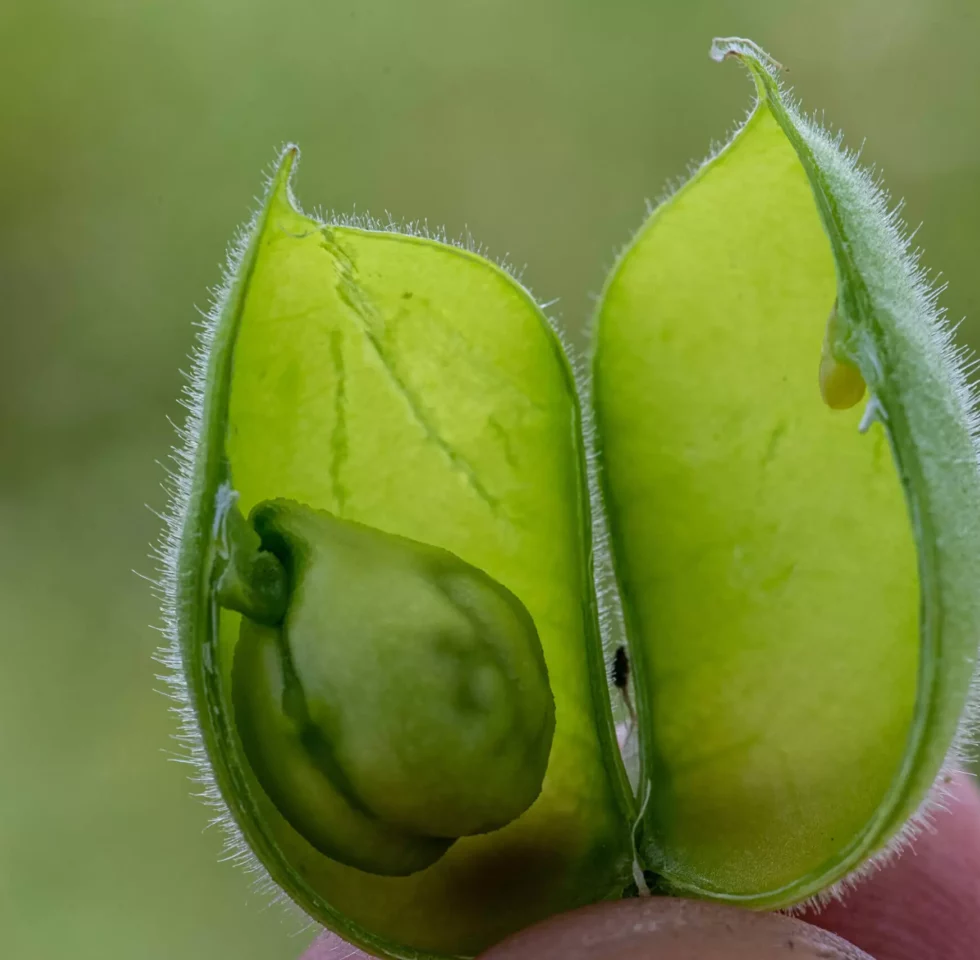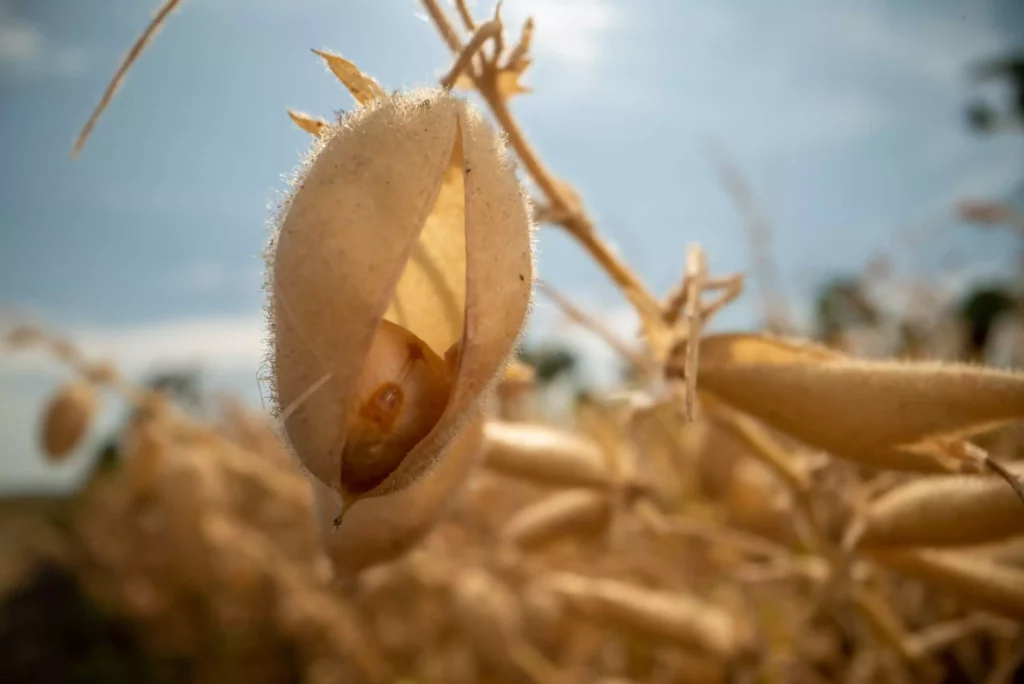How We Tackle Weeds in Organic Chickpeas
June 23, 2025We’re back in the field with our chickpea cultivation series! See how we tackle weeds after emergence using inter-row cultivation.
Read articleToday, we are exploring organic chickpea farming. This is a crop that, while not frequently seen in Serbian fields, enjoys immense popularity in the East, thanks to its taste and remarkable nutritional value.

The journey of organic chickpea cultivation on our farm began on a smaller area to validate its success. These initial trials paved the way for larger-scale cultivation and we are satisfied with the results. In this particular field (this link will take you to the field map in our Farming software, where you can access key data from the actual chickpea harvest), the yield of organic chickpeas ranges between 1,600 and 1,700 kilograms per hectare.

To ensure the success of our chickpea crop, we employ sustainable cultivation practices. The process starts with two weed controls before the chickpeas emerge from the soil (this link will take you to the field map in our Farming software at the time of this operation). After emergence, two inter-row cultivations are carried out, followed by cutting the weeds that grew above the chickpeas. These practices ensure that the chickpeas can thrive.
However, organic chickpeas are just one part of a bigger picture. At the heart of our innovative approach is the practice of multi-year crop rotation, a strategy designed to enrich the soil, reduce weeds, pests and diseases, and increase overall farm productivity. On this field, after the chickpeas, peas are sown as a green manure crop because chickpeas do not produce enough nitrogen. This not only replenishes the soil with valuable organic matter, but also restores essential nitrogen levels.
Following the harvest, our chickpeas undergo careful evaluation at a control point, where we assess their moisture content, test weight, and protein levels. After this, they are transported to our storage facilities where they await their journey to customers.
One of the most remarkable aspects of chickpeas is their nutritional value. These little legumes pack a powerful punch when it comes to nutrition. One kilogram of chickpeas contains twice as much iron as one kilogram of meat. That’s one of the reasons why we have decided to grow organic chickpeas.
We’re back in the field with our chickpea cultivation series! See how we tackle weeds after emergence using inter-row cultivation.
Read articleTwo days, three farms, one shared goal: growing hemp more sustainably. Here’s what we learned and shared during our tour of Prekmurje.
Read articleChickpeas offer great potential for organic farming. Join us as we walk you through the essential steps of chickpea cultivation, starting with seedbed preparation.
Read article